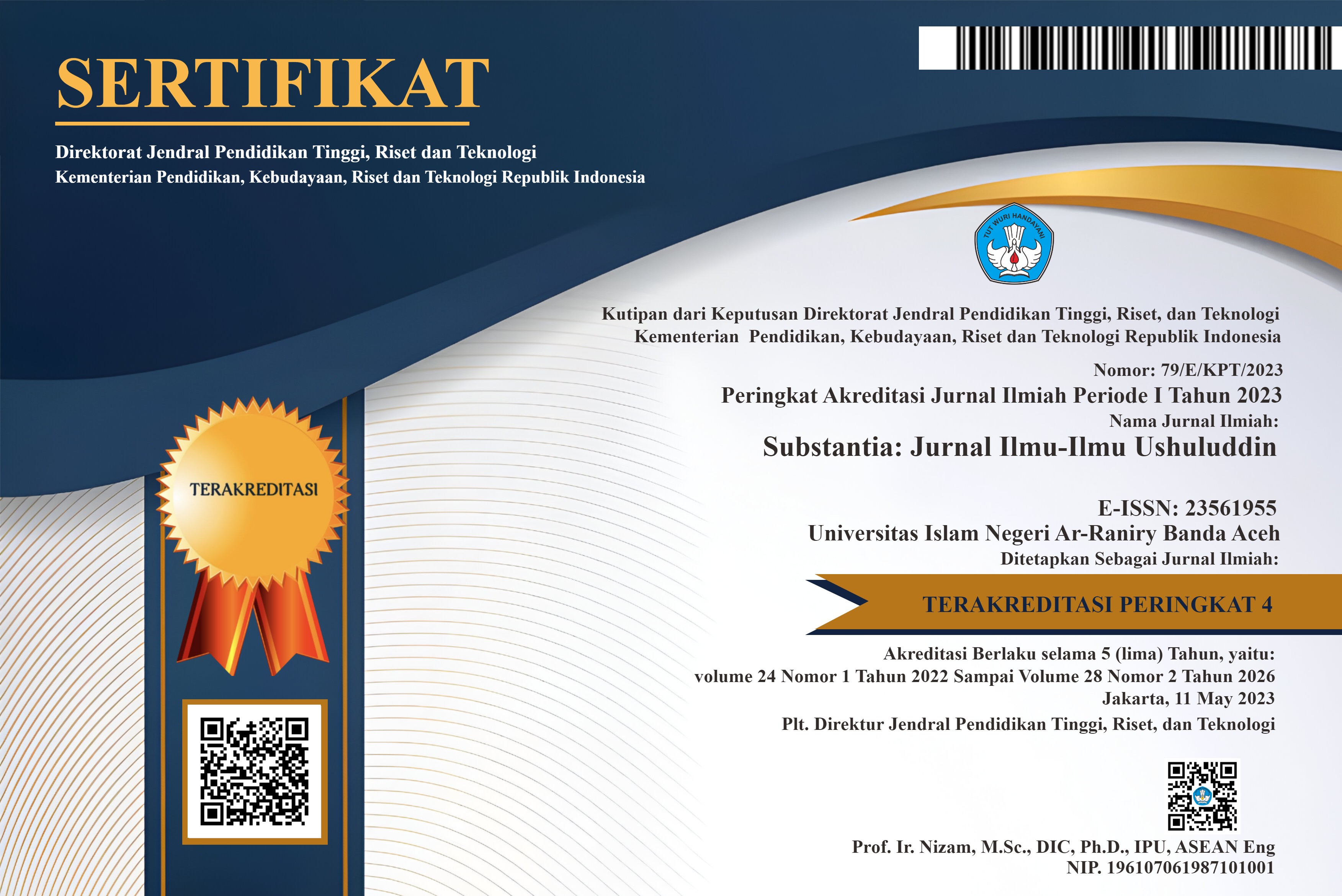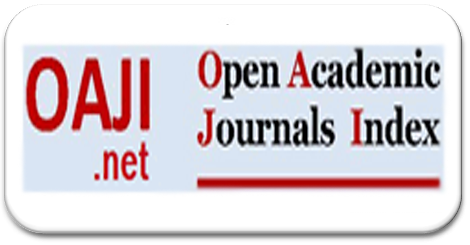Konsep Epistemologi Mulla Shadra
Abstract
Keywords
Full Text:
PDFReferences
Abdullah, M.Amin, Falsafah Kalam di Era Postmodernisme. Yogyakarta: Pustaka Pelajar, 1995
Amal, Taufik Adnan, Islam dan Tantangan Modernitas; Studi atas Pemikiran Fazlur Rahaman, Bandung: Mizan, 1989
Fakhry, Majid, Sejarah Filsafat Islam ; Sebuah Peta Kronologis, Terj. Zaimul Am. Bandung: Mizan, Cet II. 2002
Kartanegara, Mulyadhi, Menembus Batas Waktu Panorama Filsafat Islam, Bandung: Mizan, 2002
-------, Menyibak Tirai Kejahilan, Pengantar Epistemologi Islam, Bandung: Mizan, 2003
Muthahhari, Murtadha, Tema-tema Penting Filsafat Islam, Terj. A. Rifa’i Hasan dan Yuliani L. Bandung: Yayasan Muthahhari, 1993
Mustofa, H.A., Filsafat Islam, Bandung: Pustaka Setia, 1997
Leaman, Oliver, Pengantar Filsafat Islam; Sebuah Pendekatan Tematis, Terj. Musa Kazhim dan Arif Mulyadi, Bandung: Mizan, Cet II. 2002
Nasution, Hasyimsyah, Filsafat Islam, Jakarta: Gaya Media Pratama, Cet II. 2001
Nasr, Seyyed Hossein, Intelektual Islam; Teologi, Filsafat dan Gnosis, Terj. Suharsono dan Jamaluddin MZ, Yogyakarta: CIIS Press, 1995
Nata, Abuddin, Ilmu Kalam, Filsafat, dan Tasawuf, Jakarta: Raja Grafindo Persada, 1995
Nur, Syaifan, Filsafat Wujud Mulla Sadra, Yogyakarta: Pustaka Pelajar, 2002
Rahman, Budhy Munawar, Islam Pluralis; Wacana Kesetaraan Kaum Beriman. Jakarta: Paramadina, 2001
______, “Filsafat Islam†dalam Muhammad Wahyuni Nafis (ed). Rekonstruksi dan Renungan Religius Islam, Jakarta: Paramadina, 1996
Rahman, Fazlur, Islam, Terj. Ahsin Mohammad, Bandung: Pustaka, 1984
Rahmat, Jalaluddin, “Hikmah Muta’aliyah : Mazhab Filsafat Islam Pasca Ibn Rusydâ€, dalam Al-Hikmah; Jurnal Studi-studi Islam, No.10, Bandung: Yayasan Muthahhari, 1993
Yazdi, Mehdi Ha’iri, Ilmu Hudhuri ; Prinsip-prinsip Epistemologi dalam Filsafat Islam, Cet II., Terj. Ahsin Mohammad, Badung: Mizan, 199
DOI: http://dx.doi.org/10.22373/substantia.v18i2.3005
Refbacks
- There are currently no refbacks.
Copyright (c) 2016 Happy Saputra

This work is licensed under a Creative Commons Attribution-NonCommercial 4.0 International License.
SUBSTANTIA: JURNAL ILMU-ILMU USHULUDDIN
DITERBIKAN OLEH:
FAKULTAS USHULUDDIN DAN FILSAFAT
UNIVERSITAS ISLAM NEGERI (UIN) AR-RANIRY BANDA ACEH, ACEH INDONESIA
ALAMAT REDAKSI:
Gedung Fakultas Ushuluddin Lantai II, Fakultas Ushuluddin, UIN Ar-Raniry, Jln. Lingkar Kampus, Kopelma Darussalam Banda Aceh, Aceh 23111.Telp. (0651)7551295. eMail: substantia.adm@gmail.com

This work is licensed under a Creative Commons Attribution-NonCommercial 4.0 International License.


.png)




















